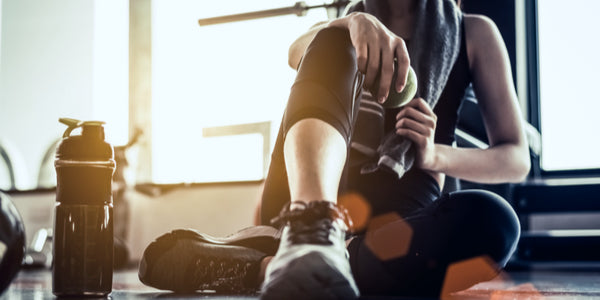
Working out until the blue in the face yet falling short on short and long-term fitness goals? Your diet might need to be evaluated.
There are also dietary considerations related to the type of exercise. For instance, an endurance athlete would likely benefit more carbs compared to casual joggers. Athletes looking to put on muscle should ensure adequate protein and calories as well.
Find out how the timing and composition of pre and post-workout meals can impact physical performance.
Timing of Pre- and Post-Workout Meals
Meal timing of pre- and post-workout meals is not a new topic of conversation amongst researchers and fitness enthusiasts.
Does working out on an empty stomach lead to greater weight loss? Should one drink a protein shake right after weight training? These sorts of questions have been put into question whether exercisers benefit most from pre or post-workout meals.
Is it okay to work out on an empty stomach?
During fasted exercise, the body is often absent of its primary energy source, or glucose from carbohydrates. The thought is that the body starts to burn fat as fuel and leads to greater fat loss.
When the body is short of glycogen (stored carbohydrate), the body is forced to seek out an alternative energy source. Besides fat stores, muscle mass may get tapped into for energy supply.
Most nutrition experts agree working out on empty is just fine if doing light exercise. Whereas fat loss may result from fasting, the breakdown of muscle can also follow if not careful.
Is slugging a protein shake necessary immediately post-exercise?
The previous thought was this: Without immediately replenishing the body with healthy carbs and protein, muscle protein synthesis would be compromised. And, ultimately, the workout would be completely pointless.
With that worry in mind, exercisers anxiously run to a post-workout meal or shake to support muscle building. Although nourishing the body following a workout is important, the window of opportunity is now lengthened.
Research shows the window surpasses that 30-minute timeframe, even suggesting a post-workout fuel opening of 4 to 6 hours. What’s more, a balanced meal following strength training can be just as beneficial.
The Bottom Line on Meal Timing
Everyone is unique and recommendations should be individualized. Some athletes swear by intermittent fasting while others would not pass up a pre-workout meal or snack.
Amidst the information, it is a good idea to always listen to your body and what it needs. If eating is out of the question, at least make sure you are hydrated before, during, and after exercise.
Pre-Workout Meals
Fueling the body with food can give you the extra jolt to power through a workout. However, there are additional considerations when it comes to cardio versus strength training.
What to Eat Before Cardio
Again, if exercise is light, eating may not be necessary. This especially serves true if trying to lose weight, as a 500-calorie snack exceeds calories burned during a 30-minute jog. However, one should not ignore hunger nor automatically forego a pre-cardio snack if exercise is longer in duration or intensity.
Eating healthy carbohydrate sources before a cardio session can keep muscles fueled and improve physical performance. A small amount of protein can be helpful, too, although fat intake should be kept to a minimum.
It is important to remember, though, eating full meals can cause indigestion. And the closer in time you are working out, the smaller the portion should be. If a balanced meal was consumed two to three hours before a workout, eating may not be necessary.
If working out before breakfast or dinner, try to eat easy-to-digest snacks 30 to 60 minutes before exercising. Pre-workout snacks should be carb-rich while offering some protein, including these ideas:
• Greek yogurt with berries
• Slice of whole-grain bread with peanut butter
• Granola bar
• Piece of fruit
• Rice cake with nut butter
• Crackers
If the endurance activity lasts for over an hour, such as with marathon training, intra-workout carbs are often recommended. This may be in the form of a sports drink, fruit juice, or energy gel packet. These sources offer quick digesting carbs to fuel the workout and keep blood sugars level.
What to Eat Before Weight Lifting
Strength training is the process of lifting weights often in hopes to build muscle and strength. Foods to eat before weight lifting include those with a similar nutrient composition of a pre-cardio meal. The timing of meals and snacks is considered as well.
If eating up to three hours before training, balance a meal with carbs from whole foods, protein, and healthy fats. If eating less than an hour before training, opt for a light snack that includes carbs and protein. Including protein before weight lifting is especially helpful to prevent muscle breakdown.
Drinking branch chain amino acids (BCAAs) may also increase the rate of muscle synthesis while minimizing muscle damage and soreness. This is because BCAAs bypass the liver and enter the bloodstream for immediate muscle use.
Fueling Your Body Post-Workout
Just like pre-workout recommendations, knowing what to eat after cardio and strength training can vary.
Best Post-Workout Meals for Muscle Gain
Workout meals often depend on the goals and experience level of the exerciser. However, those who strength train benefits from consuming adequate protein.
As a general rule of thumb, consume no less than 0.8 grams of protein per kilogram (g/kg) of body weight. Athletes and people looking to build muscle may benefit from 1.2 to 2.0 g/kg of body mass. Muscles absorb about 30 grams of protein during each meal, so space out protein throughout the day to achieve daily requirements.
The importance of carb and fat sources in the diet should not be overlooked, either. Consuming a ratio of at least 3 or 4:1 carbs to protein is often recommended for optimal results. This is because carbs increase insulin levels that helps protein shuttle into the muscles.
Foods to help build muscle include:
• Whole eggs
• Skinless chicken breast
• Fish, including salmon and tuna
• Plant-based proteins, including tempeh and beans
• Protein shakes
Essential Post-Cardio Exercise Meals
A post-cardio meal or snack often comes down to the intensity and duration of the workout. This is because it is all too common for people to overcompensate with food.
However, a vigorous spinning class or long run often warrants refueling glycogen stores that have been depleted. The snacks are similar to those following a post-weight training session, especially if the muscles undergo loads of stress.
There are additional foods that can help with recovery for all types of exercise beyond the noted macronutrients. These include foods rich in antioxidants, which can lower inflammation and assist in post-exercise recovery. Antioxidant-rich foods include:
• Blueberries
• Oranges
• Fatty fish
• Olive oil
• Tomatoes
All in all, workout nutrition comes down to the type and duration of the exercise. Personal fitness goals should also be considered. For extra guidance, consult with a dietitian to help determine a customized workout nutrition plan for you!





